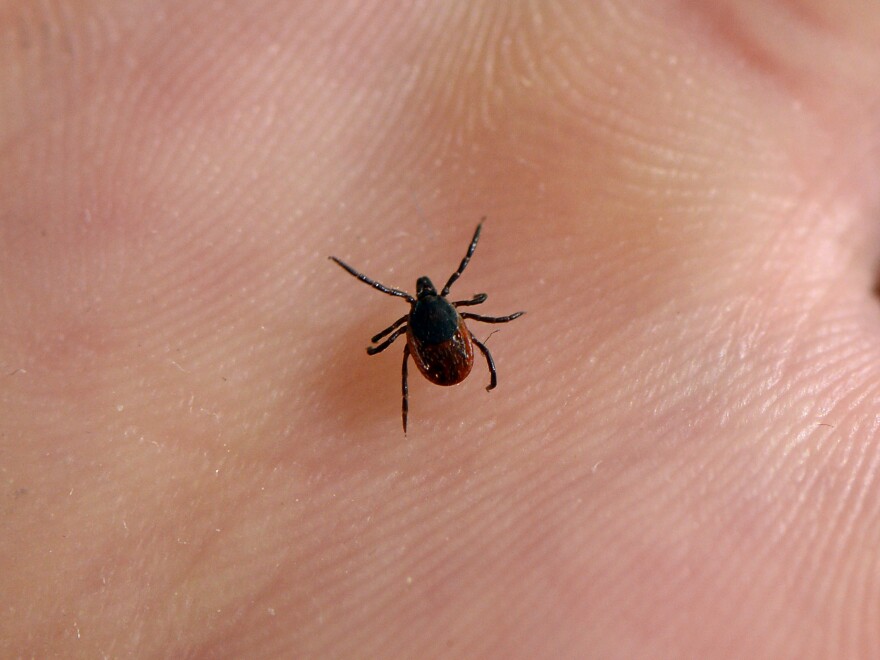A mild winter could mean more ticks this season.
Lehigh Valley doctors say they are seeing patients coming in with tick-related illness earlier than normal.
But there are ways to prevent them.
- A mild winter has resulted in more ticks this season
- Ticks can carry Lyme disease and other infections
- Tick prevention is the first line of defense against tick-borne illnesses
Those tiny black bugs known as ticks can be found anywhere there is soil and vegetation, so people should be checking for them anytime they spend time outdoors.
That’s the message from the state Department of Conservation and Natural Resources.
"Ticks can be found anywhere where there is soil and there's vegetation, so anytime you're outside in the lawn, anything like that, you want to make sure you check," environmental education specialist Jacob Smith said.
"The best way I think is to really check your clothing and your skin for ticks.”
Smith said the warmer weather may bring out more of the parasites.
“In terms of this year versus previous years, we are starting to see warmer climates,” Smith said. “Ticks can be active if it's over 40 to 45 degrees. So with that in the wintertime, we can see them, they are active, so there could be more.”
Bitten without knowing it
Pennsylvania is home to about 25 species of ticks, according to Smith. However, the most common is the black legged tick, also known as the deer tick, which can transmit Lyme disease.
"Practically speaking, the most common tick-borne condition or infection in Pennsylvania is Lyme disease, but running strong, a close second are two conditions, actually," said Dr. Luther Rhodes, an infectious disease specialist with Lehigh Valley Health Network.
"One is Anaplasma, which is a bacterial infection and a parasite infection called Babesiosis.”
Rhodes said he and his colleagues are starting to see tick-borne infections in patients a bit earlier this year.
"You wouldn't feel a tick," he said. "Tick bites are painless and that's the problem. This time of year, ticks are no bigger than the dot you see with a ballpoint pen.”
The physician said ticks attach to areas that aren’t always visible, such as in the back of the knees, the groin, in the elbow, or the crook of the neck.
Prevention is the key
Both Rhodes and Smith said tick prevention is the first line of defense against a tick-borne illness. To prevent a tick bite people should:
- Wear long sleeves
- Tuck their pants into their socks so no skin is accessible
- Wear light-colored clothing so ticks can be easily spotted
- Spray clothes with the insecticide Permethrin
- Apply insect repellent with DEET in it
- Check the body for ticks after spending time outside
Rhodes said there is proper tick removal method if it is embedded.
"If a tick is found attached, it is best to remove with fine tip tweezers, not burn it with a match or anything, and you don't want to squash it because then the infection can still occur," he said.
Though people may not feel the tick bite, a bullseye rash appears when Lyme disease is present. Rhodes said that the red ring often gets bigger over time and is accompanied by a headache along with other aches and pains.
He said the insect has to be embedded in the host for more than 24 hours to become infected.
"There's actually multiple days in which you can start antibiotics and cure it," he said in regard to treating the disease. "There's no golden hour with starting a particular antibiotic.”
Those who remove a tick and want it to be tested for disease can send it out to a lab. If you suspect that you or a family member may have contracted Lyme disease or another tick-borne illness, you should contact a doctor.

